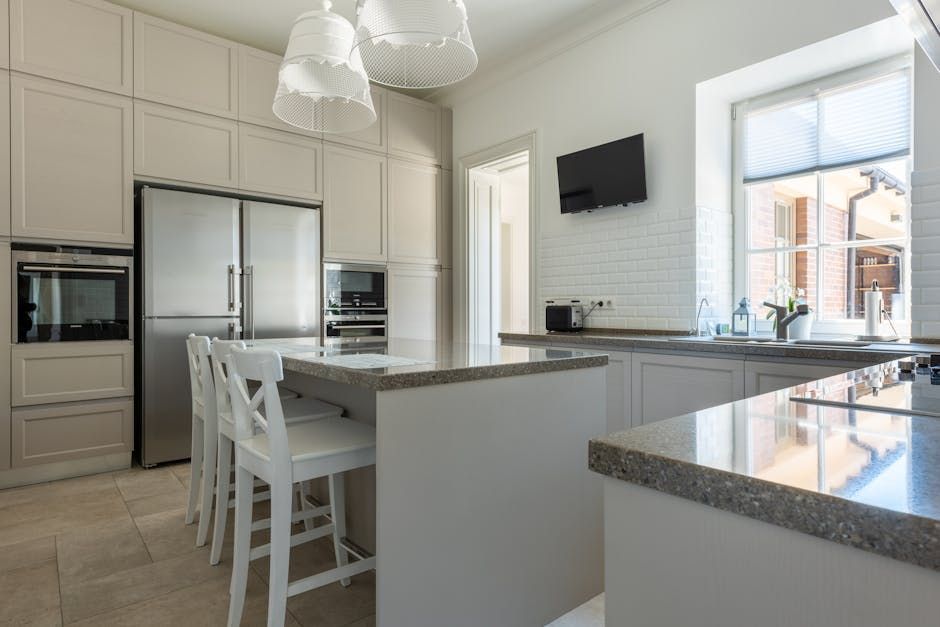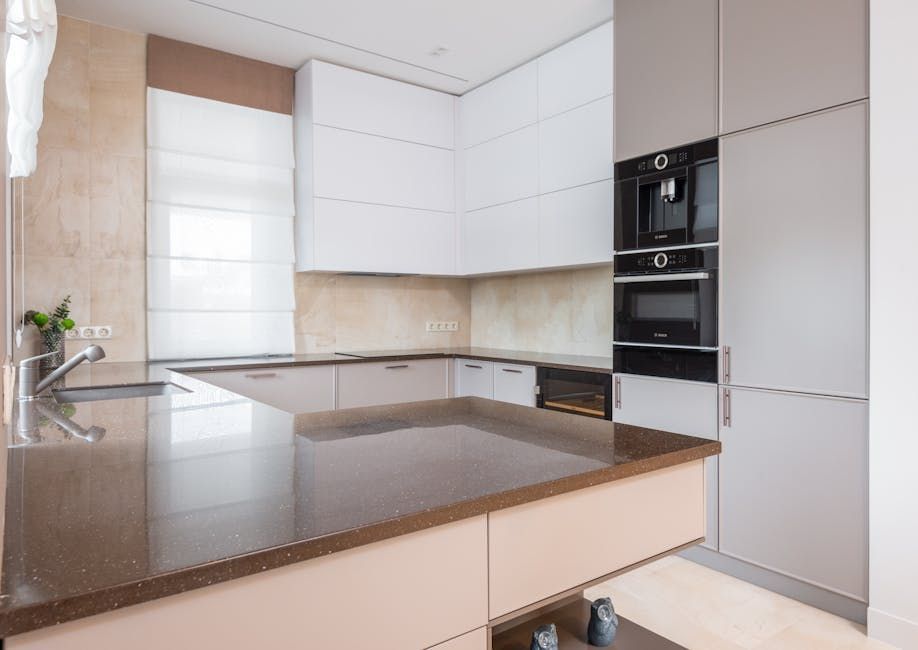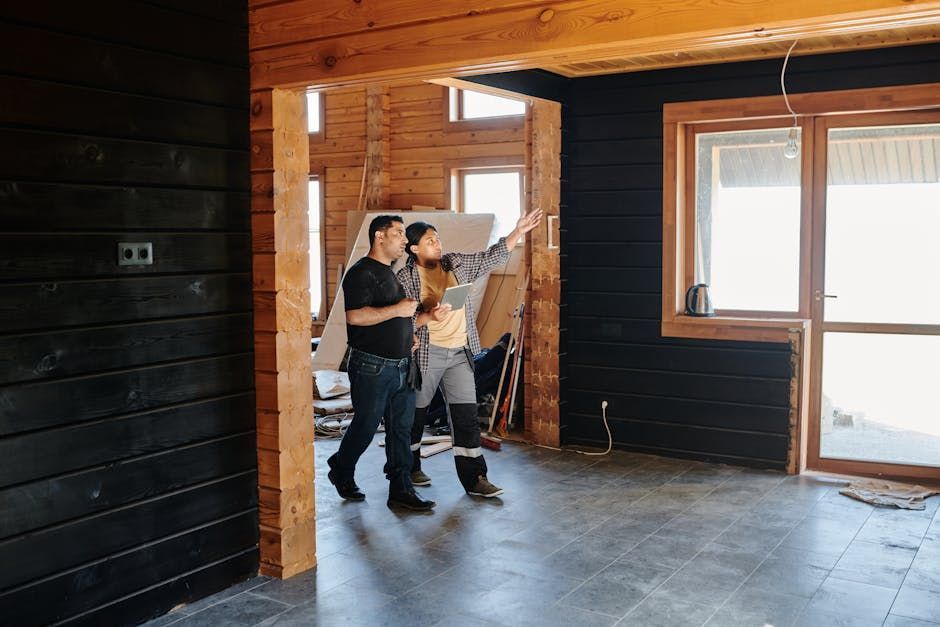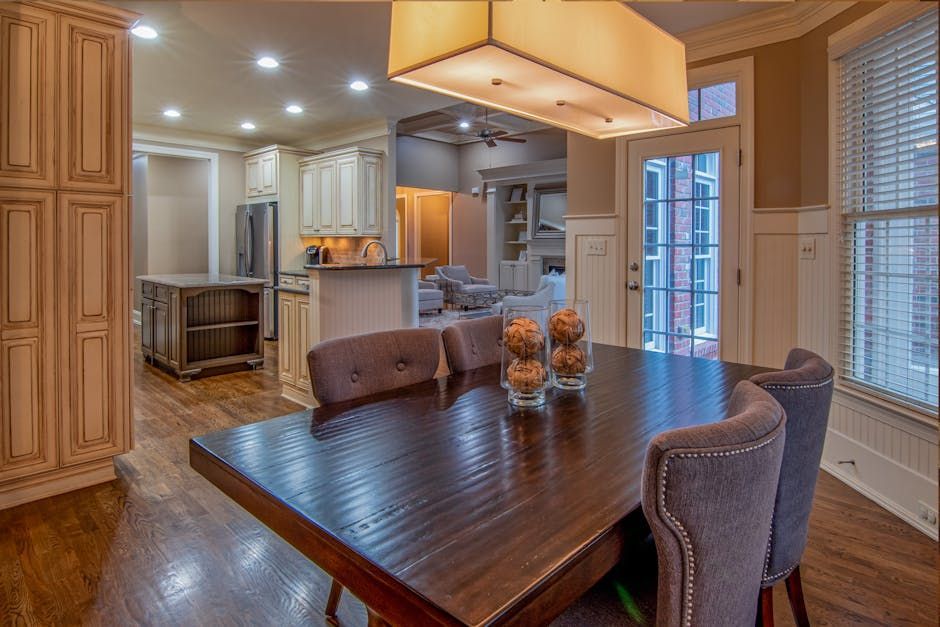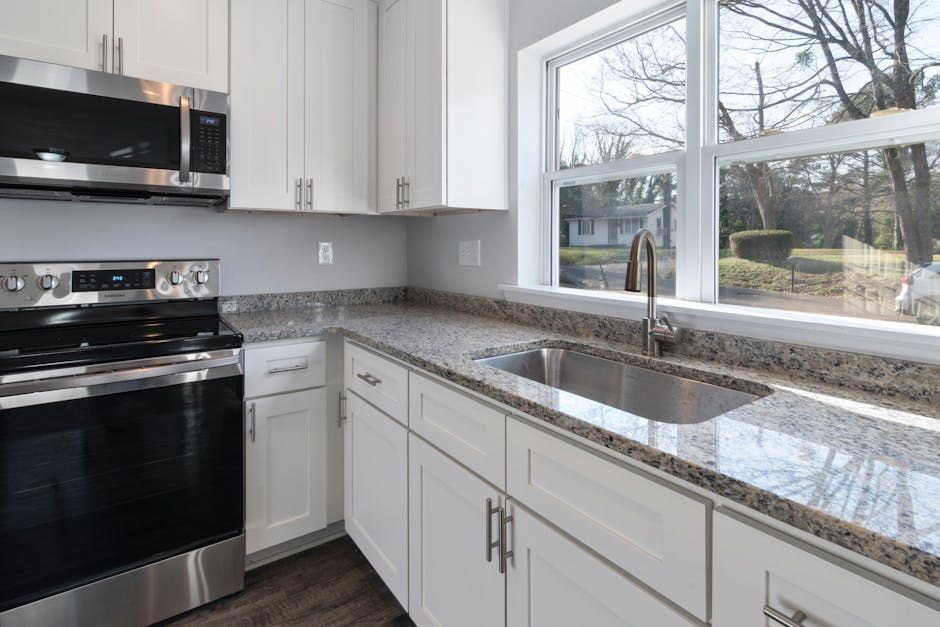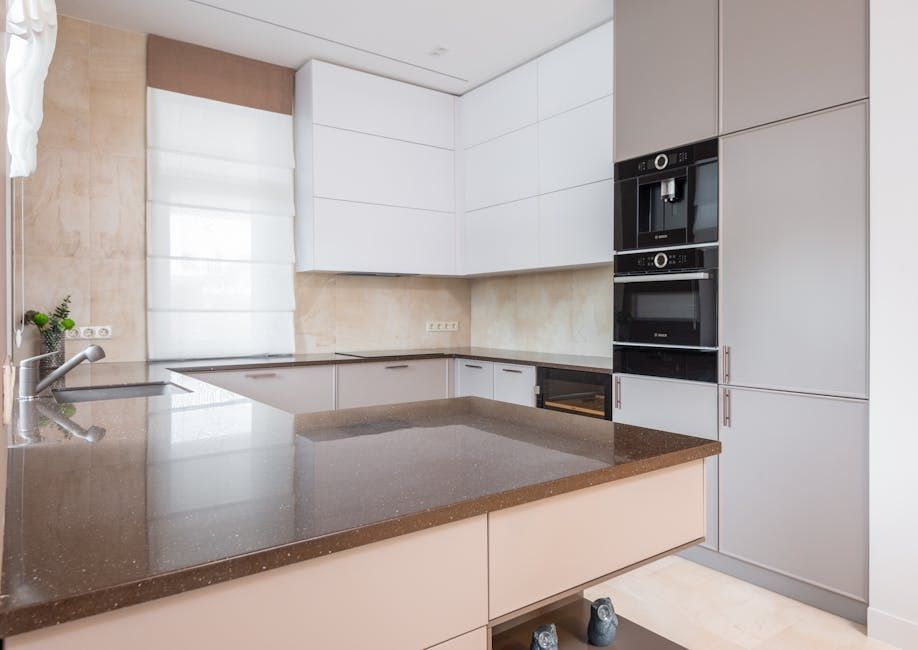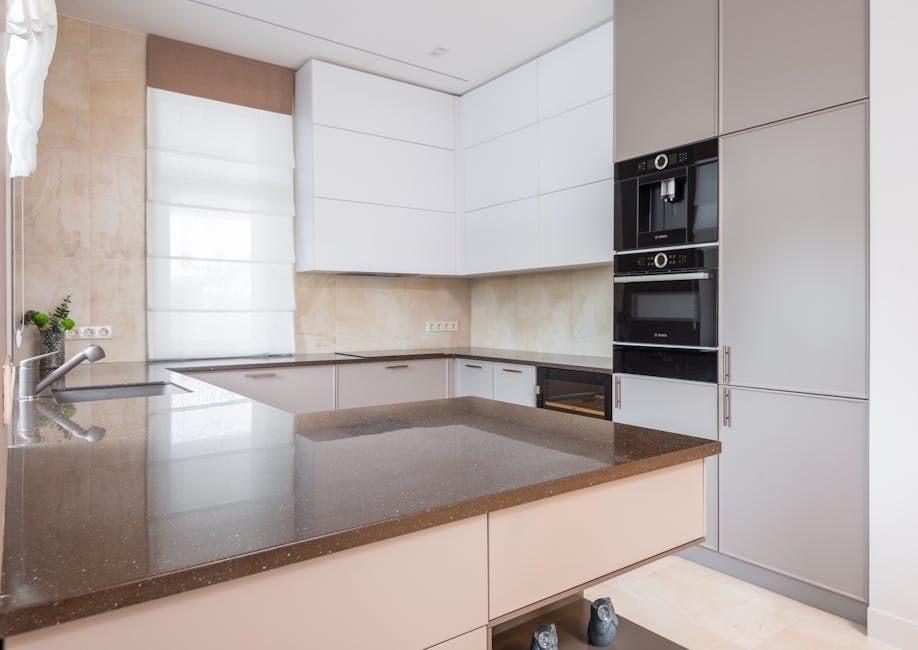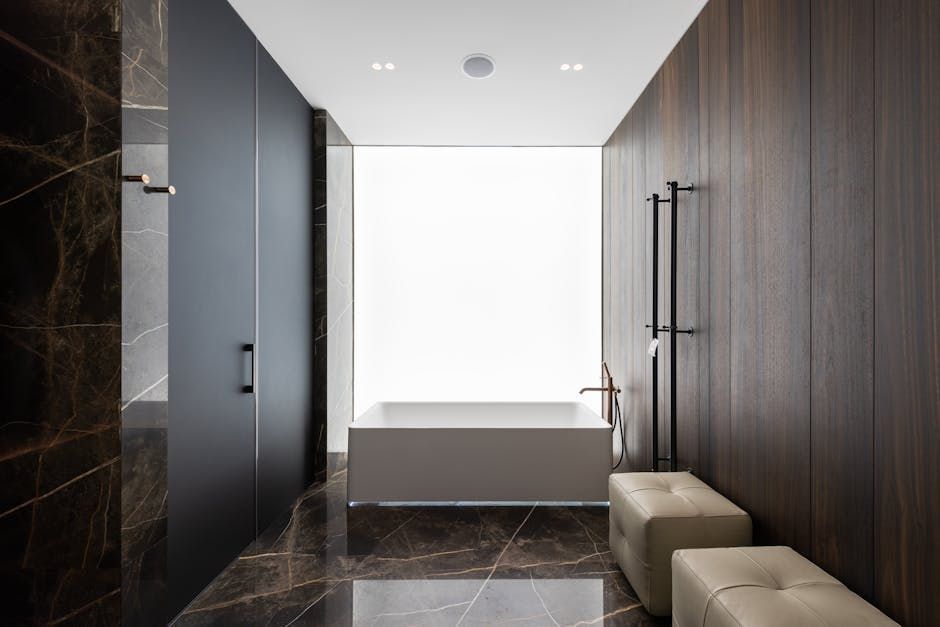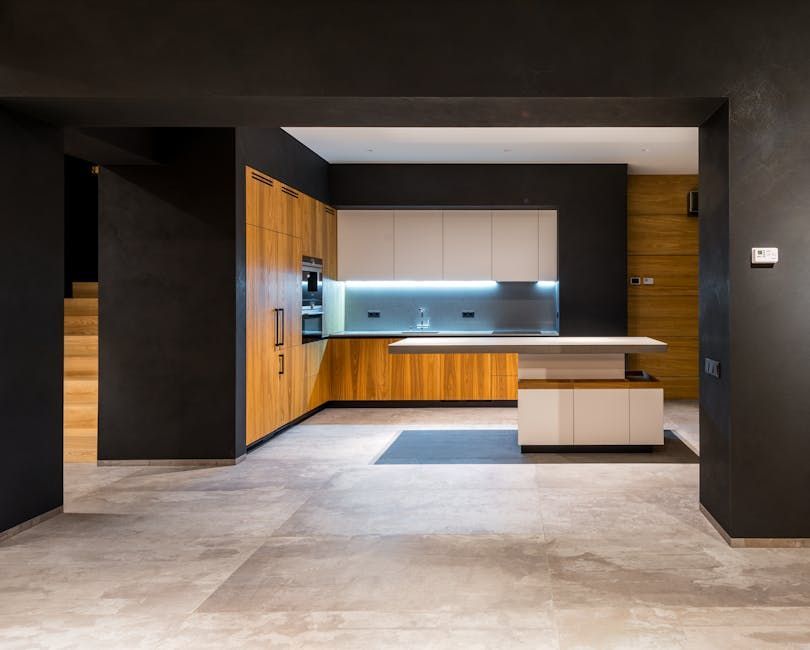Quartz vs. Granite: Choosing the Right Countertop for Your Home
Introduction to quartz and granite countertops
When you’re looking to pick the right countertop for your home, you’ll likely end up considering quartz and granite. Both are popular choices, each with its unique perks. Let’s dive into what sets them apart. Granite, a natural stone pulled straight from the earth, gives your space a one-of-a-kind look since no two slabs are the same. It’s known for its durability and the touch of elegance it can add to any kitchen or bathroom. On the flip side, quartz countertops are engineered stone products formed by combining around 90-95% ground natural quartz with 5-10% resins, polymers, and pigments. This mix crafts a surface that’s not just sturdy but also offers a wider range of colors and designs than granite. Ultimately, your choice between quartz and granite depends on what you’re looking for in a countertop – the unmatched natural beauty of granite or the customizable and slightly more resilient quartz.
The distinct characteristics of quartz countertops
Quartz countertops stand out because they’re not just any ordinary surface—they’re man-made. This means they come with a consistency in color and pattern that natural stone can’t always offer. What’s really cool about quartz is that it’s extremely tough. We’re talking about a material that resists scratches and stains better than most. Plus, it doesn’t need sealing like granite does, making it lower maintenance. If you’re into a wide variety of colors and designs, quartz has got you covered. It’s made by mixing ground quartz with resins and pigments, giving you more options to match your kitchen’s vibe. So, if you’re eyeing something that’s sturdy, easy to care for, and offers plenty of design choices—quartz countertops are definitely worth considering.
The unique features of granite countertops
Granite countertops are a hit for those who love the natural, one-of-a-kind look in their kitchen or bathroom. Each slab of granite is unique, presenting an exclusive pattern and coloration that can’t be found in any other piece. This means your countertop will be uniquely yours. Unlike quartz, which is engineered, granite is entirely natural, coming straight from the earth, making it a durable choice for countertops. It stands up well to heat, cuts, and scratches, making it a practical option for busy kitchens. However, it’s important to know that granite requires a bit more love to keep it looking pristine. It needs to be sealed periodically to prevent stains and avoid housing bacteria. But with the right care, granite countertops not only add value to your home but also bring a touch of nature’s beauty into your indoor spaces.
Comparing the durability of quartz and granite
Quartz and granite are heavyweight champs in the world of countertops. Let’s dive right into their durability, because that’s what really counts when you’re picking what’s right for your kitchen. First off, granite is a natural rock, which means it’s tough as nails. It resists scratching and chipping like a pro. But, it’s not invincible. It needs to be sealed once in a while to keep stains and bacteria at bay.
On the flip side, quartz is like granite’s cool cousin. It’s engineered stone, meaning it’s a mix of natural quartz and polymer resins. This combo makes quartz slightly tougher against scratches and stains. Plus, it doesn’t need any sealing, ever. So, it’s pretty much maintenance-free. However, it doesn’t like heat. Hot pots can damage its surface, unlike granite that can take the heat without a sweat.
So, in the battle of durability, both are strong contenders. Granite offers timeless strength with a bit of care, while quartz brings durability and ease of maintenance to the table. Your choice depends on what kind of fighter you want in your corner.
Maintenance: Quartz countertops vs. granite countertops
When it comes to keeping your countertops looking great, quartz and granite have their differences. Quartz countertops are pretty low maintenance. You won’t need to seal them since they’re non-porous. This means spills won’t soak in, making them easier to clean up. A simple wipe with soap and water is enough. On the other hand, granite is porous and requires a bit more love. You’ll need to seal granite countertops once a year to prevent stains and damage. For daily cleaning, soap and water will do, but remember, that red wine spill needs quick action. Both materials are tough, but quartz wins in the easy-care department.
Aesthetic comparisons: Styles and colors
When it comes to the looks department, quartz and granite countertops offer distinct vibes that can influence the style and color scheme of your kitchen or bathroom. Granite, a natural stone, boasts unique patterns and colors. No two slabs are the same, giving your space an exclusive feel. Its look varies widely, offering everything from subtle earth tones to striking blues and greens. Quartz, on the other hand, is engineered stone. This means it comes in a broader range of colors and patterns, which are consistent and predictable, allowing for a more uniform appearance across your countertops. Quartz can mimic natural stone or present vibrant colors not typically found in nature. So, if you prize originality and natural beauty, granite might be your pick. But if you lean towards a more uniform and customizable color palette, quartz could be the way to go.
The impact of quartz and granite on home value
When we talk about upgrading your kitchen, choosing the right countertop is a game-changer, especially when it’s between quartz and granite. These materials aren’t just about looks; they’re investments into your home’s value. Let’s dive straight in. Granite, a natural stone, has been the go-to choice for years. It screams luxury and durability, often adding more value to your home because of its uniqueness. Each slab is one-of-a-kind, appealing to those looking for a unique kitchen. On the flip side, quartz, engineered from natural quartz and resin, offers a more uniform look and comes in a wider variety of colors. It’s nearly as tough as granite and less prone to chips and cracks.
So, what’s the real impact on your home value? Homes with granite countertops can see an uptick in interest and value, simply because granite has held a reputation for luxury in home design for decades. Quartz, however, is catching up fast. Its low maintenance and wide range of options make it a favorite among modern homeowners and could potentially increase your home’s value similarly to granite.
In a nutshell, both options are likely to boost your home’s value. Which one edges out over the other depends largely on market trends and personal preference in your area. Whether you lean towards the natural beauty of granite or the sleek, consistent finish of quartz, you’re making a smart move for your home’s future.
Cost comparison: Investing in quartz vs. granite countertops
When deciding between quartz and granite countertops, cost plays a big role. Generally, granite starts at about (40 to )60 per square foot, while higher-quality slabs can cost up to $100 per square foot. Quartz, slightly pricier, ranges from (50 to )70 per square foot with high-end options reaching $100 per square foot. Keep in mind, the price can vary based on factors such as color, complexity of the installation, and the region where you live. Though quartz might seem more expensive at first glance, it offers benefits like no sealing requirement and being less prone to staining, which could save money in the long run. So, when comparing costs, consider initial investment against long-term value.
Environmental considerations: Which is more eco-friendly?
When thinking about which countertop to choose for your kitchen or bathroom, considering the environmental impact of quartz and granite is crucial. Granite is a natural stone, quarried directly from the earth. This process of extracting granite can be very damaging to the environment. It involves large machinery and can lead to deforestation and destruction of natural habitats. Plus, transporting the heavy stone from the quarry to your home also adds to its carbon footprint.
On the other hand, quartz countertops are engineered from crushed natural quartz blended with resins, polymers, and pigments. The manufacturing process of quartz countertops is less taxing on the environment since it requires less energy compared to mining. Additionally, some quartz manufacturers use recycled materials, further reducing its environmental impact. However, the resins used in quartz countertops are not always eco-friendly as they can contain chemicals.
In the battle of eco-friendliness, quartz has a slight edge over granite due to its potential for using recycled materials and its less disruptive manufacturing process. Yet, it’s essential to consider the whole picture, including the sustainability of the materials used and the production process, before making your final choice.
Conclusion: Making the right choice for your home
Deciding between quartz and granite countertops boils down to what’s most important to you. If you’re leaning towards unique patterns and the prestige of natural stone, granite could be your best bet. It’s durable, each piece is one of a kind, and with a little care, it can last a lifetime. On the flip side, if you’re chasing a modern look, consistent patterns, and want something that’s easier to maintain, quartz might be the way to go. It’s non-porous, so it resists staining much better than granite and doesn’t require sealing. In the end, both choices are solid. It’s all about your personal taste, budget, and what you value most in your kitchen or bathroom aesthetics. Whether it’s the natural allure of granite or the sleek, uniform appearance of quartz, your decision will enhance your home’s value and charm.

